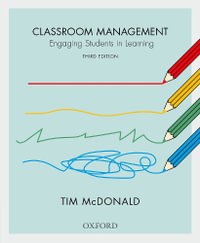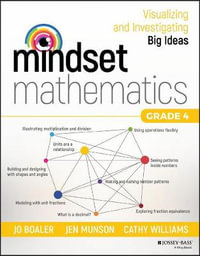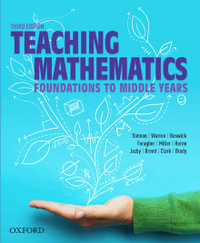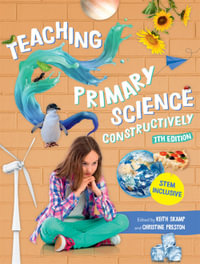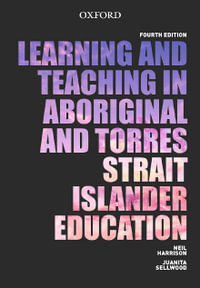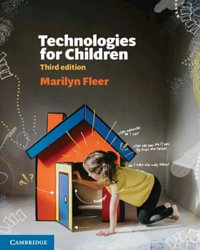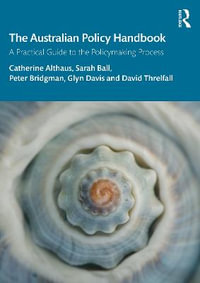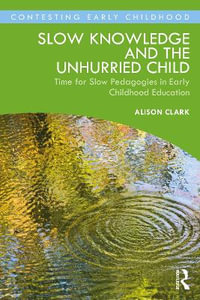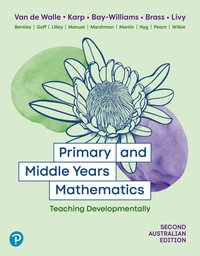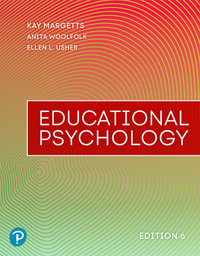
Action Research in Education
2nd Edition - A Practical Guide
By: Sara Efrat Efron, Ruth Ravid
Paperback | 22 February 2020 | Edition Number 2
At a Glance
Paperback
RRP $110.00
$97.90
11%OFF
Aims to ship in 5 to 10 business days
When will this arrive by?
Enter delivery postcode to estimate
Preservice and inservice educators get crucial step-by-step guidance for conducting classroom- and school-based studies to improve their instructional practices. Organized to mirror the full cycle of action research, the book provides balanced coverage of qualitative, quantitative, and mixed methods approaches. Vivid vignettes and examples illustrate research approaches for a range of teaching and learning situations, school subjects, and age groups (PreK-12).
Readers learn how research approaches are driven by the research question, as well as how to: develop data collection strategies; design and/or evaluate assessment tools; interpret, analyze, report, and implement study results; and design a new cycle of research that builds on the previous one.
New to This Edition
- In-depth descriptions of CAR and PAR--which enable groups of teachers to work together to solve problems in a classroom or school--plus examples of both throughout the book.
- Expanded or new discussions (with examples) of such topics as: how research approaches and methods are driven by the research question, how to assess different types of reliability and validity, the differences between analysis and interpretation, and how to use sequential cycles of research for continuous improvement and professional development.
- Fully updated references and resources.
- Both individual and group exercises and activities in every chapter.
- New and updated checklists and guidelines that enable busy educators to self-assess the progress and quality of their studies.
- Sample templates to assist in development of research instruments.
- Example boxes illustrating the components of an action research report.
- Summary tables highlighting key aspects of different research strategies.
- Chapter summaries (now shorter for ease of use) and suggestions for further reading.
About the Authors
Sara Efrat Efron, EdD, is Professor of Education and Director of the Doctoral Program in Curriculum, Advocacy, and Policy at National Louis University. Her areas of interest include teacher research, mentoring, and moral and democratic education in times of crisis. Dr. Efron is coauthor, with Ruth Ravid, of Writing the Literature Review and Action Research in Education, Second Edition. She has published numerous book chapters and journal articles and presents widely at national and international conferences. She has also written several foreign-language instruction books for middle and high school students.
Ruth Ravid, PhD, is Professor Emerita of Education at National Louis University. Her areas of interest include educational research, action research, assessment, and school-university collaboration. Dr. Ravid has published numerous journal articles, book chapters, and books, including Writing the Literature Review and Action Research in Education, Second Edition, both coauthored with Sara Efrat Efron.
Industry Reviews
"A solid overview of the essential components of action research, presented in a scholarly yet reader-friendly way. This text is excellent for our Master of Literacy program. It clearly depicts the six cyclical steps of action research, showing how research can continuously build our understanding of what works and what needs to be changed or adjusted. Unlike other action research texts that align only with qualitative research, the book discusses fundamentals of both qualitative and quantitative methods. The authors' emphasis on using the research questions to determine the research method(s) acknowledges the complexity of practitioner-based research. Practical and empowering, this book describes not only how to identify problems in educational settings, but also how to seek solutions through the cycle of research."--Cheryl A. Kreutter, PhD, School of Education, State University of New York at Geneseo
"I used this book for several years as the primary text for an online graduate course, Action Research, which serves as a capstone for master's of education students. From the opening pages, the authors set the stage for understanding action research as an important approach to making classroom decisions based on systematically collected data. The pedagogical features such as vignettes and exercises are a strength of the book. There is a clear attempt to access textual, visual, and hands-on channels of learning. Self-quizzes allow for guided review."--John H. Yoder, PhD, Core Faculty in Education (retired), Concordia University-Portland
"I have reviewed a number of action research texts, and, time and again, I return to Efron and Ravid's book. It is simply the best available. With excellent content and depth, the text guides educators to conduct cycles of inquiry in their schools. It includes rich examples, tables, and figures to illustrate key concepts, as well as checklists to support action researchers."--Kimberly Kappler Hewitt, PhD, Division of Research, Discovery, and Innovation, School of Education, University of North Carolina at Greensboro
"This is an excellent introductory text for the novice action researcher. The authors cover both qualitative and quantitative methods and offer advice on using already existing assessment data in action research studies. The text is practical and applicable to a wide variety of educational contexts."--Linnea Rademaker, PhD, School of Educational Leadership, Abilene Christian University
"The book contains everything that I need in terms of content--it is a great introduction to action research. The writing style is its biggest strength. Many students are nervous about beginning to do research, and this book helps by presenting a step-by-step approach."--Eugene Geist, PhD, Department of Teacher Education, Ohio University-If you are teaching a research class to novice researchers, especially those in education, I would highly recommend this book for its practical approach, and the emphasis on writing and the use of assessment data. Teachers are often overwhelmed with available data in their classrooms and schools/m-/understanding as well as the data. This book provides much needed practical instructions for both issues. (on the first edition)--Inquiry in Education, 7/1/2013
ISBN: 9781462541614
ISBN-10: 1462541615
Published: 22nd February 2020
Format: Paperback
Language: English
Number of Pages: 276
Audience: General Adult
Publisher: GUILFORD PUBLICATIONS
Country of Publication: GB
Edition Number: 2
Edition Type: New edition
Dimensions (cm): 23.5 x 18.5 x 1.5
Weight (kg): 0.51
Shipping
| Standard Shipping | Express Shipping | |
|---|---|---|
| Metro postcodes: | $9.99 | $14.95 |
| Regional postcodes: | $9.99 | $14.95 |
| Rural postcodes: | $9.99 | $14.95 |
How to return your order
At Booktopia, we offer hassle-free returns in accordance with our returns policy. If you wish to return an item, please get in touch with Booktopia Customer Care.
Additional postage charges may be applicable.
Defective items
If there is a problem with any of the items received for your order then the Booktopia Customer Care team is ready to assist you.
For more info please visit our Help Centre.
You Can Find This Book In
This product is categorised by
- Non-FictionSociology & AnthropologySociologySocial Research & Statistics
- Non-FictionPsychologyPsychological Methodology
- Non-FictionEducationEducational Psychology
- Non-FictionEducationTeaching of a Specific Subject
- Non-FictionEducationEducational Strategies & Policy
- Non-FictionReference, Information & Interdisciplinary SubjectsResearch & InformationResearch Methods
- Non-FictionEducationPhilosophy & Theory of Education
- Text BooksHigher Education & Vocational TextbooksEducation Higher Education Textbooks






